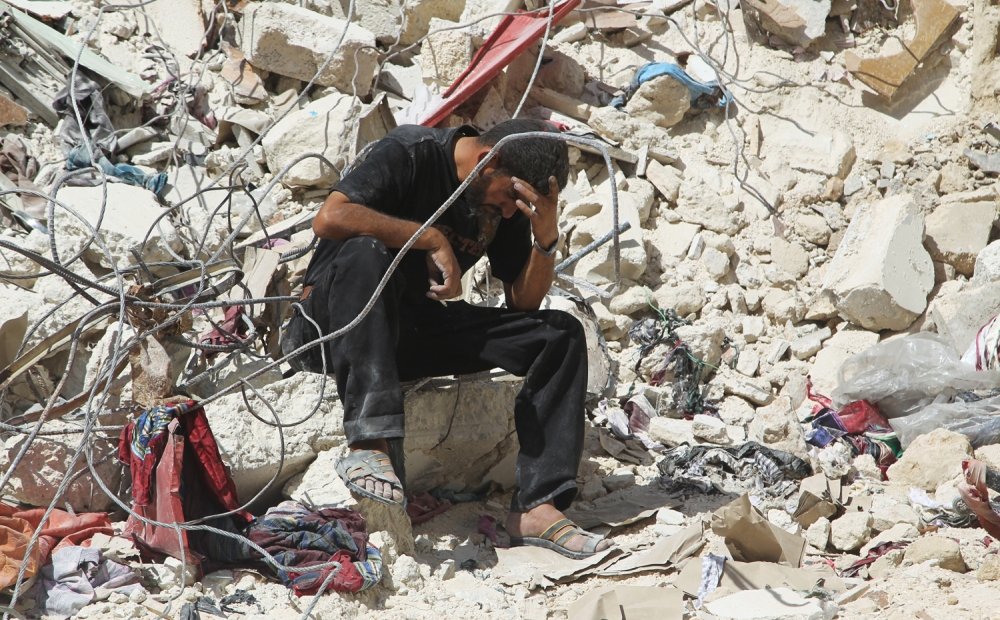The United States, Russia and Syria: What Comes Next After Ceasefire Talk Suspension

"Here is my concern. The signaling over the last several months has been crystal clear. The Russians practice linkage. They believe that the U.S. position on Syria doesn't exist in isolation. It is a reflection of their position on Ukraine, sanctions, support of color revolutions. Therefore they are prepared to link to other issues as well. I'm going to go right to it. The issue that is the nuclear third rail is the question of nuclear weapons. And the Russians have signaled in at least several ways on the last couple of months that they are prepared to escalate in that dimension and that is something that Americans ignore at their peril. Russia is the one country on this planet that can destroy life in the U.S. as we know it, in under 30 minutes."
Igor Zevelev: Russia As a Global Power (Listen to this clip)Putin’s goal is reasserting Russia as a great power with a global reach; Russia does not see itself as just a regional power, it has global interests and ambitions. And in order to demonstrate it, Moscow has to do something on the world arena from time to time. Being a great power is an everyday referendum: you must prove it to yourself and to the rest of the world. So to achieve this goal of reasserting Russia as a great power, Putin sets from my perspective the following objectives, globally and in Syria. I would emphasize three of them. First is limiting America’s world leadership role. Russia actually never recognized it, even when it was much weaker it developed the concept of multipolarity where there was no place for a global leader. And from Putin’s perspective the Middle East is a convenient ground for pushing back against the Americans because of the American public and the Obama administration’s fatigue with the region. And now Russia wants to set the rules of the game in this region. Second objective is stopping what Moscow sees as the American crusade to do regime changes around the world. And the Arab Spring primarily is seen as a result of American efforts in the region, that’s how Moscow sees those events. So when Russian forces arrived, the Assad’s forces were supposed to collapse no more and Moscow is happy that it stops the wave of regime changes here and now. And finally the third of Putin’s objective is breaking the U.S. monopoly over usage of its military power to achieve foreign policy goals. And Moscow wants to demonstrate Russia’s ability to project its military power well beyond its borders.
Joshua Landis: On the Humanitarian Catastrophe (Listen to this clip)Jane Harman: Are these people [in Aleppo] in their basements just pawns in a geopolitical play, or does anybody or should anybody really care about them and if somebody really cares about them, in the short term, before they starve, what are some options, meaningful options, other than just talking about it to get some medical and food relief to them?
Josh Landis: You know there are two ways to do that. One is to, the Assad regime way, which is to say: the rebels have to leave and we will let those people out. The Assad regime claims and there is some indication that it’s true that the thousand Nusra fighters and 8000 other rebel fighters are not letting the people leave and this is why the UN Special Mediator Staffan de Mistura said that he would go in personally and help these people out and help the rebels leave if they would release the people in a sense and allow for the UN to take the people out of this area so either they have to put down their arms and leave in which case there would be UN coming in, or the US would have to go in and help the rebels win against Assad and Russia. Those seem to be the two options for saving this civilian population that’s trapped in East Aleppo.
Introduction:The Honorable Jane Harman
Director, President and CEO, The Wilson Center
Joshua Landis
Director, Center for Middle East Studies, University of Oklahoma
Matthew Rojansky
Director, Kennan Institute, The Wilson Center
Igor Zevelev
Former Director, Russia Office, MacArthur Foundation and Wilson Center Fellow
Aaron David Miller
Vice President for New Initiatives, The Wilson Center
Hosted By

Kennan Institute
After more than 50 years as a vital part of the Wilson Center legacy, the Kennan Institute has become an independent think tank. You can find the current website for the Kennan Institute at kennaninstitute.org. Please look for future announcements about partnership activities between the Wilson Center and the Kennan Institute at Wilson Center Press Room. The Kennan Institute is the premier US center for advanced research on Eurasia and the oldest and largest regional program at the Woodrow Wilson International Center for Scholars. The Kennan Institute is committed to improving American understanding of Russia, Ukraine, Central Asia, the South Caucasus, and the surrounding region through research and exchange. Read more


Middle East Program
The Wilson Center’s Middle East Program serves as a crucial resource for the policymaking community and beyond, providing analyses and research that helps inform US foreign policymaking, stimulates public debate, and expands knowledge about issues in the wider Middle East and North Africa (MENA) region. Read more
